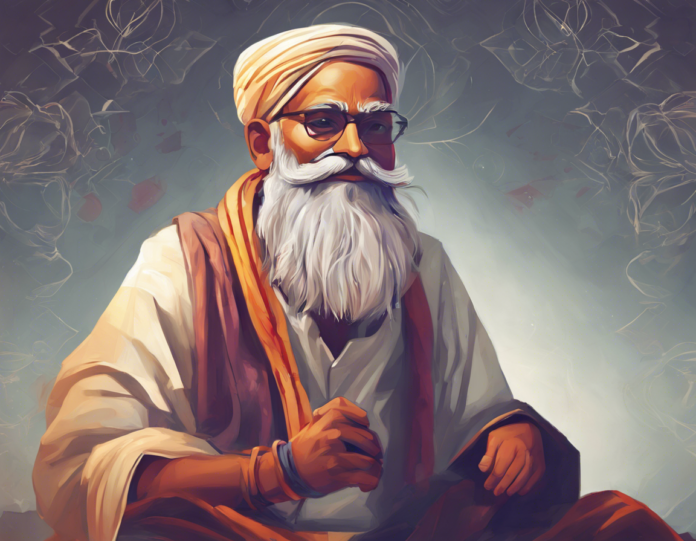Introduction:
In the landscape of Indian literature and spirituality, the name of Kabir Das shines brightly as a luminary. Kabir Das, often referred to simply as Kabir, was a poet, saint, and philosopher who lived in the 15th century. His verses, known as “Kabir ke Dohe”, remain revered for their profound philosophical insights and spiritual wisdom. In this article, we will delve into the life and legacy of Kabir Das, exploring his background, teachings, and enduring impact on Indian culture.
The Life of Kabir Das:
Kabir Das was born in Lahartara, a small town near Varanasi, India. The precise details of his birth and early life are shrouded in mystery and legend, adding to the enigmatic aura that surrounds him. Kabir’s upbringing is said to have been in a Muslim family, yet his poetry reflects influences from Hinduism and Sufism. This amalgamation of diverse cultural and religious influences is a hallmark of Kabir’s philosophy, which emphasizes unity, tolerance, and universal love.
Teachings of Kabir Das:
Kabir’s verses are characterized by their simplicity and directness, making profound spiritual truths accessible to all. His poetry often critiques institutionalized religion, advocating for a personal and intimate connection with the divine. Central to Kabir’s teachings is the concept of finding God within oneself and recognizing the inherent divinity that resides in every being.
Key Themes in Kabir’s Poetry:
-
Oneness of God: Kabir emphasizes the oneness of the Ultimate Reality, transcending the boundaries of religious labels and dogmas.
-
Discarding Ritualism: He critiques empty rituals and external displays of piety, emphasizing the importance of authentic and sincere devotion.
-
Love and Compassion: Kabir extols the virtues of love, compassion, and service to humanity as pathways to spiritual growth.
-
Inner Journey: His poetry often speaks of the inner journey towards self-realization and the discovery of the true self.
Legacy of Kabir Das:
Kabir’s influence extends far beyond his lifetime, permeating the fabric of Indian culture and spirituality. His verses are recited and revered by people of various backgrounds, transcending religious divides and linguistic barriers. Kabir’s legacy continues to inspire artists, musicians, and spiritual seekers, carrying forward the torch of universal wisdom and humanistic values.
Frequently Asked Questions (FAQs):
1. Who was Kabir Das and what was his contribution to Indian literature?
Kabir Das was a 15th-century poet, saint, and philosopher known for his profound verses that blend elements of Hinduism and Sufism. His poetry emphasizes oneness, love, and spiritual realization, making a significant contribution to Indian literature and spiritual philosophy.
2. What are some famous works of Kabir Das?
Some of Kabir’s most famous works include his Dohas or couplets, which are short, pithy verses that convey deep philosophical insights and spiritual wisdom in simple language.
3. How did Kabir’s background influence his teachings?
Kabir’s upbringing in a multicultural environment, exposed to both Hindu and Islamic traditions, shaped his inclusive and universalistic approach to spirituality. His teachings emphasize unity and tolerance among all faiths.
4. What is the significance of Kabir’s emphasis on simplicity in his poetry?
Kabir’s simplicity in language and expression made his teachings accessible to the common people of his time. It also underscores the universal and timeless nature of his message, resonating with audiences across generations.
5. How has Kabir’s legacy influenced contemporary literature and music?
Kabir’s verses have inspired a rich tradition of literature, music, and artistic expression. His timeless wisdom continues to be celebrated in various forms, contributing to a cultural legacy that transcends boundaries of time and space.
Conclusion:
Kabir Das remains an enduring figure in the realms of literature, spirituality, and philosophy. His profound insights into human nature, divine love, and the path to self-realization continue to resonate with seekers on the spiritual journey. Through his timeless verses, Kabir invites us to explore the deeper dimensions of existence and connect with the universal truths that lie at the heart of all traditions.
